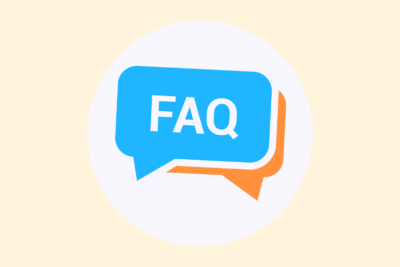Entity-based SEO in a world full of LLMs

The way search engines process information has fundamentally changed. Whereas traditional SEO relied heavily on keywords, in the world of LLMs (Large Language Models) it is increasingly about entities. Think of people, companies, locations and concepts that are related to each other. Entity-based SEO thus forms the bridge between classic search optimization and AI findability.
What is entity-based SEO?
Entity-based SEO is not about individual keywords, but about entities and their interrelationships. An entity is a recognizable unit with a unique meaning: Ralf van Veen, SEO, Amsterdam, Google Search Console, and so on. Search engines (and AI models) use these entities to understand what a page is about – regardless of exactly how you phrase it.
So instead of optimizing for “SEO specialist Amsterdam,” I optimize for the entities SEO, specialist and Amsterdam, and the relationship between them.
Why entities are important in an LLM era
LLMs such as GPT-4, Claude or Gemini are trained on billions of text fragments. They analyze language not at the keyword level, but at the meaning level. These models understand concepts by recognizing, linking and contextualizing the entities in them.
If content reflects entities clearly and correctly, then an LLM:
- Understanding what the text is really about
- Making connections with other information
- Linking me as an author to a topic or niche
This increases the likelihood that content will be cited or summarized in AI search results or generated responses. (1)
How I incorporate entities into content
I have been tailoring content to entities rather than keywords for some time. Below I explain how I approach that.
1. Use of recognizable names, brands and terms
I avoid vague descriptions such as “the tool” or “a well-known platform.” Instead, I specifically mention: Google Analytics 4, Ahrefs, LinkedIn Ads. This helps AI systems recognize and correctly link entities.
2. Contextual explanation
An entity by itself says little. The power is in the context. When I write about SEO in combination with local businesses in Utrecht, I make a connection that is recognizable and useful to AI. Those relationships are crucial.
3. Internal linking and content clusters
By connecting related entities through internal links and content clusters, I increase my topical authority. AI systems thus then recognize that my site does not have one page on link building, but a whole network around SEO strategies.
4. Add structured data
With structured data (for example, via schema.org), I explicitly tell search engines what the entities in my content are. Consider:
- Organization with my company name
- Person with my own name as author
- Product or Service if I am describing a service
This helps Google as well as AI models that have access to structured information (such as via the Google Knowledge Graph) to correctly interpret the content. (2)
Getting started with SEO? Feel free to get in touch.

Entities in action: example
Suppose I am writing a page about SEO for real estate agents in Rotterdam. Instead of focusing on the exact search term, I build the page around the following entities:
- SEO (topic)
- Brokers (target audience)
- Rotterdam (location)
- Google Business Profile, local search intent, housing offerings (additional related entities)
This creates a semantic network in which content becomes meaningful to both humans and AI models.
Entity-based SEO versus classic keyword SEO
| Aspect | Classic SEO | Entity-based SEO |
| Focus | Keyword combinations | Meaningful entities and relationships |
| Target | Rank on specific terms | Comprehensibility and topical authority |
| Works for | Google Search | Google+ LLMs such as ChatGPT/Gemini |
| Tactics | Keyword density, headings | Context, semantics, structured data |
The two forms are not mutually exclusive. What I see in practice is that entity-based SEO is a deepening of existing optimization. This is essential if you also want to be found in AI search engines.
What does this mean for your content strategy?
When I develop a content strategy, I think in entities from the beginning:
- What concepts are core topics?
- What context is involved?
- What related concepts can I logically link?
By writing content based on entities rather than keywords, I build a robust foundation. That works not only for ranking in Google, but also for recognition and reuse in AI systems.
Summary
Entity-based SEO is the logical evolution of search engine optimization in a world where AI and LLMs are increasingly dominant. By building your content around meaningful concepts and clear relationships, you ensure that that content remains relevant, understandable and findable, for people and search engines.
Do you want to know if your website already scores well on entity level? Want to set up a strategy that is future-proof, including towards ChatGPT and Gemini? Feel free to send me a message. I’ll take a look with you.
| # | Source | Publication | Retrieved | Source last verified | Source URL |
|---|---|---|---|---|---|
| 1 | Brand Entity SEO – Whiteboard Friday (Moz) | 16/05/2025 | 16/05/2025 | 27/10/2025 | https://moz.com/blog/bra.. |
| 2 | Intro to How Structured Data Markup Works | Google Search Central | Documentation | Google for Developers (Google for Developers) | 10/03/2024 | 10/03/2024 | 02/10/2025 | https://developers.googl.. |
- Scholz, J. (16/05/2025). Brand Entity SEO – Whiteboard Friday. Moz. Retrieved 16/05/2025, from https://moz.com/blog/brand-entity-seo
- (10/03/2024). Intro to How Structured Data Markup Works | Google Search Central | Documentation | Google for Developers. Google for Developers. Retrieved 10/03/2024, from https://developers.google.com/search/docs/appearance/structured-data/intro-structured-data






